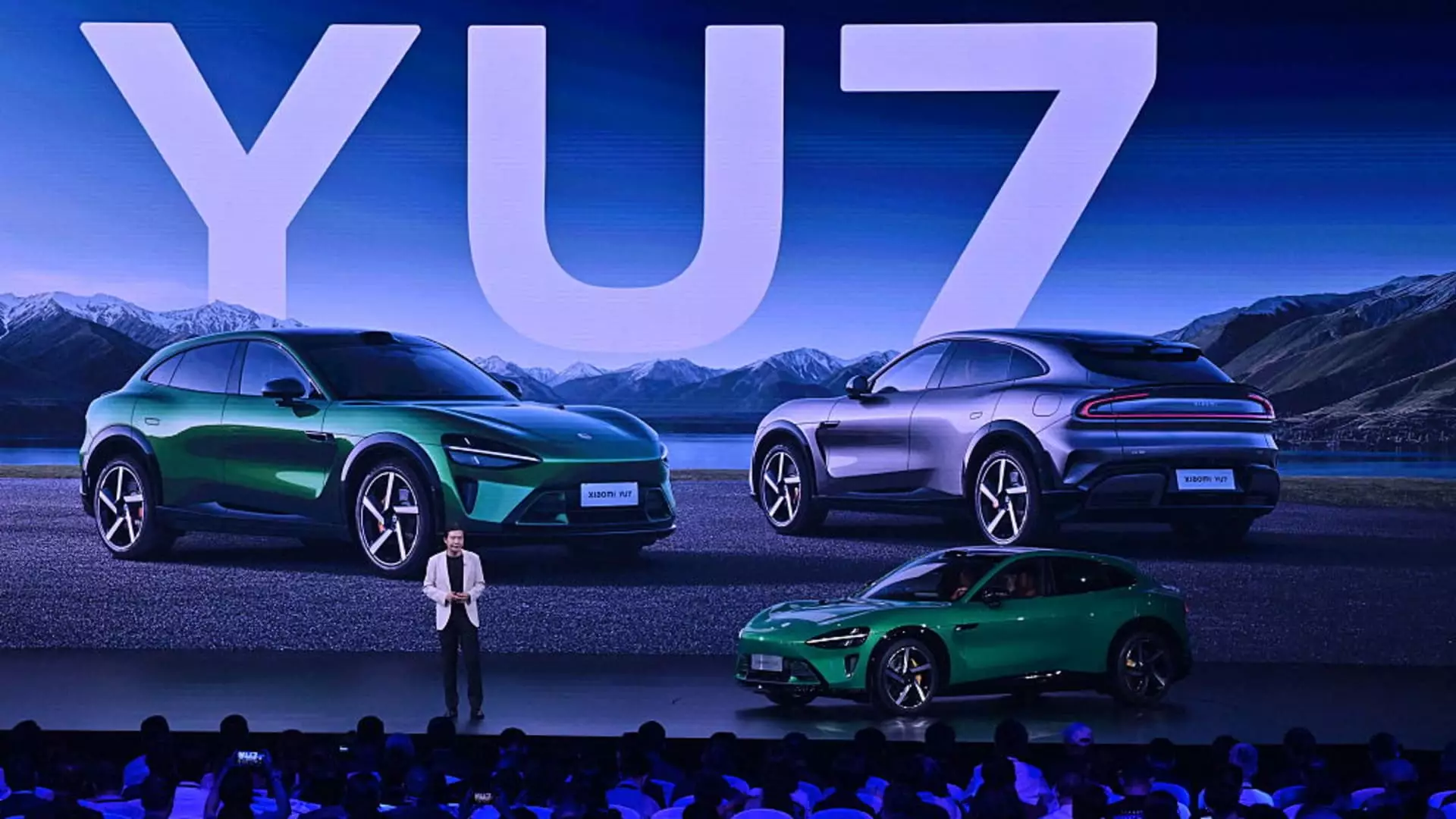In the sprawling arena of electric vehicles (EVs), where innovation meets relentless competition, Xiaomi has decided to not just partake but to make a bold statement. Striking with its YU7 SUV, the Chinese tech titan intends to dethrone Tesla’s dominance in the Chinese market, which has long stood firm with its Model Y. By promising an impressive driving range of 760 kilometers on a single charge, Xiaomi is not just throwing a gauntlet; it is laying the groundwork for a battle set to echo across the automotive industry.
What makes Xiaomi’s push significant is not merely the specifications of the YU7 but the audacity of a brand that primarily flourished in consumer electronics now daring to shake the very foundations of the automotive sector. While many companies trudge through the uncertainties of this transformation, Xiaomi, with its rich history in consumer technology, appears fervently undeterred. The company understands that the essence of any product, especially an EV, lies not only in range or performance but in crafting an emotional narrative around its innovation.
Pricing Strategy: A Double-Edged Sword
Xiaomi’s pricing strategy is as intriguing as it is perilous. With the YU7 expected to bear a price tag between 250,000 yuan to 320,000 yuan (roughly $34,700 to $44,420), it threads a fine line between premium positioning and competitive accessibility. This price range rivals Tesla’s entry-level Model Y, which starts at approximately 263,500 yuan. It’s worth pondering whether Xiaomi can cultivate a perception of luxury coupled with affordability without alienating either market segment.
Citi analyst Jeff Chung forecasts monthly sales reaching around 30,000 units, which underscores market expectations that the YU7 could bicycle a hefty slice of Tesla’s current market share. But here lies the conundrum: while ambition fuels growth, it also invites scrutiny and skepticism. Should the YU7 fail to meet consumer expectations or if supply-chain snags occur, the repercussions might be dire.
The Market Dynamics: A Tug of War
As of now, the competition within the EV landscape in China resembles a gladiatorial arena rather than a mere market. With BYD’s solutions frequently leading the charge due to their aggressive pricing and consumer-centric strategies, the battle will be native to creativity and tactical market movements. Xiaomi’s offerings, including the SU7 sedan, have already positioned the company favorably against Tesla’s Model 3, underscoring that Xiaomi is not just a newcomer but a formidable force.
It is essential to address the incident that marred Xiaomi’s earlier success when the crash of an SU7 resulted in tragic fatalities. Such occurrences bring a stringent watch from regulators and forces companies like Xiaomi to tread lightly on promotional language concerning safety features. Thus, while aggressive marketing might draw attention, it also demands a cautious approach toward consumer trust, especially in the wake of escalating concerns surrounding driver-assist technologies.
The Consumer’s Emotional Connection
In the end, it’s not merely about numbers or statistics; it’s about creating a relationship with consumers that extends beyond the products they buy. Xiaomi’s drive to resonate emotionally with its audience hinges on how well it can articulate the narrative of its vehicles, especially the YU7. This necessity offers a unique opportunity for Xiaomi — to further solidify its brand identity in the minds of consumers who are increasingly valuing sustainability alongside cutting-edge technology and sleek designs.
In drawing parallels with the tech market, Xiaomi carved its path through consumer electronics by offering immense value juxtaposed with user-friendly features. The question is whether the YU7 can harness that heritage and evolve it within the automotive realm, or whether it will falter against seasoned competitors who know the balance of innovation and trust all too well.
Thus, as Xiaomi prepares to unveil the YU7 formally in July, the stakes are higher than mere sales numbers or market positioning. The venture into the automotive space serves as whether Xiaomi can sustain its rapid ascendance—this isn’t just a car; this could be the cornerstone of a legacy.

